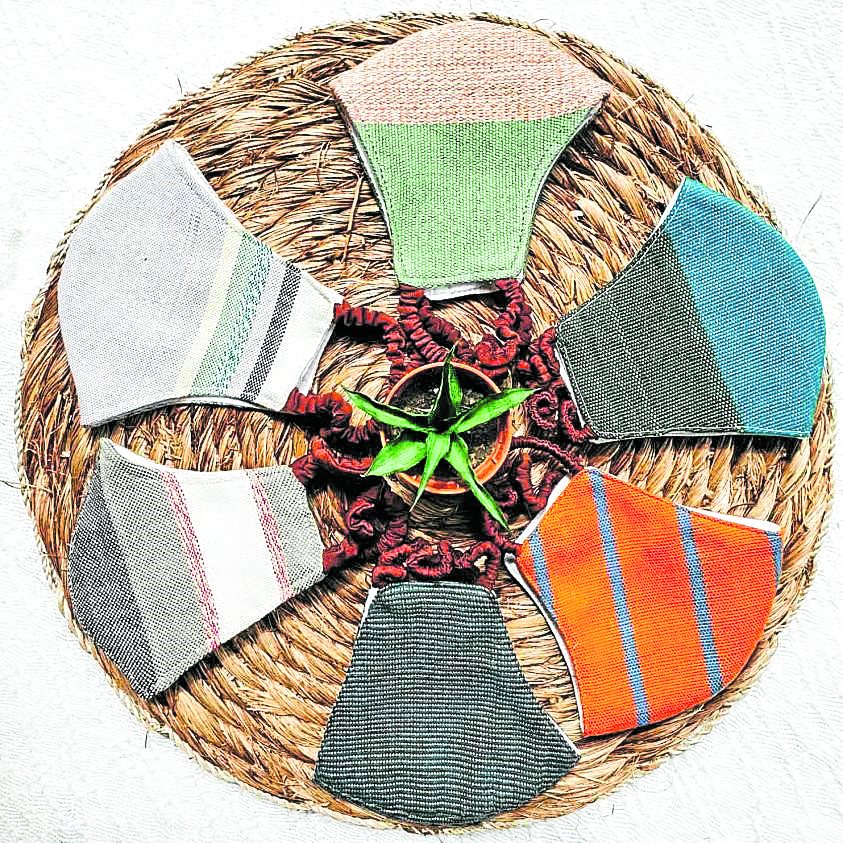Women of ‘Yolanda’ and Marawi weave hope amid tragedies

Made with traditional Maranao weaves, the Kadasig reusable face mask is an essential item for the pandemic that is rewriting the story
of disaster-stricken areas, Tacloban and Marawi.
Seeking to inspire hope in their communities by rewriting the disaster-victim narrative, Maranao weavers and Tacloban seamstresses have banded together to create the Kadasig reusable face masks to revive the local fabric and clothing industry.
Through a partnership between Pilipinas Shell Foundation Inc. (PSFI) and ECHOsi Foundation, Inc., each with their own community-driven livelihood development programs for the women of Tacloban and Marawi respectively, these two women’s groups have been brought together to produce an essential item in these challenging times: the Kadasig reusable face mask that helps reduce the risk of COVID-19 transmission and infection.
“Kadasig, which means resilient in Waray-Waray, is not only about celebrating the heritage of our indigenous fabric but the tangible output of their fortitude,” said PSFI executive director Sebastian Quiniones Jr. “It has already been years since the tragedies of Typhoon ‘Haiyan’ and the Marawi Siege, and many in the affected communities are still struggling with rehabilitation. This is why the Kadasig project is also about supporting these women as they change the narrative so often told about their communities.
Designed based on the guidelines released by the World Health Organization (WHO) for nonmedical face masks, the Kadasig face mask is made up of three layers using a combination of absorbent and nonabsorbent materials to ensure full protection.
The unique weave on the outer layer was made by the Maranao weavers using a traditional backstrap loom. More than generating needed income, the Maranao women also seek to revive the weaving tradition, which is an important part of their culture.
Article continues after this advertisement“Kabaya ame a makuwa a grupo ame na katukawan o kadakelan so kultura ame knaba bu sa Pilipinas ka sa intero a dunya (Our hope is that our culture will be known, not just here in the Philippines, but all over the world),” said Rahma Abad, one of the Maranao weavers.
Article continues after this advertisementThe Maranao weave, in turn, is used by the seamstresses of Tacloban, who cut, sew and structure the traditional fabric into the final Kadasig face mask.
“19 na ako ka tuig nga mananahi hin damu la nga mga klase hin tarahi-on sugad hin mga bistida, blouse, pantalon, uniforms, PPE, masks o bangot, ngan damu pa nga iba (I have been sewing for 19 years. I sew many different kinds of things, like dresses, blouses, pants, uniforms, personal protective equipment, masks and many others),” said Rosalia Ramirez, the head of the Tacloban seamstress group. “Dili masukol and amon kalipay nga mayda kami natahe nga tikang ha Marawi (Our happiness is beyond words, knowing that we are able to make masks from weaves of Marawi).”
Amid the challenge of rehabilitation and the obstacles faced due to the ongoing pandemic, these two women’s groups are helping their communities pick themselves up again. As part of its commitment to being the Philippines’ partner in nation-building, Pilipinas Shell continues to support these local communities as they recover.
The Kadasig reusable face masks are available at echostore.ph